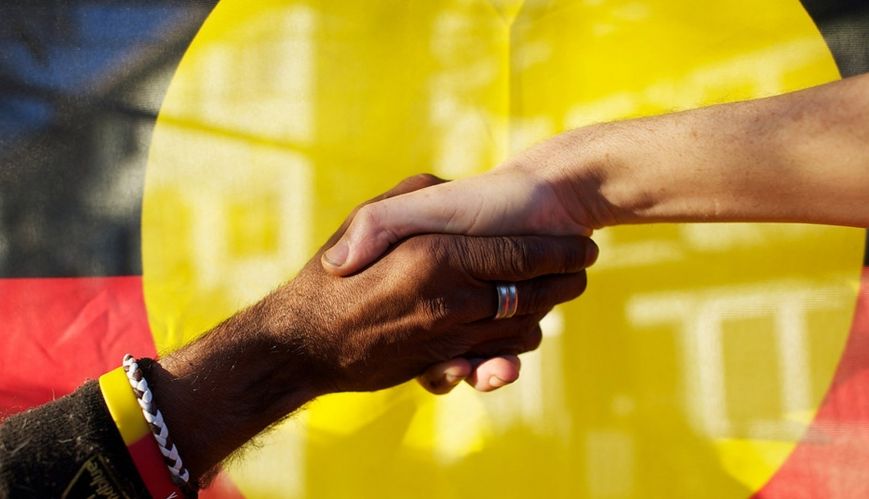Vision of reconciliation worth fighting for

Vision of reconciliation worth fighting for
5 July 2017
Reconciliation is a call to friendship with Aboriginal peoples.
I became a Christian through The Salvation Army in 2000. My story isn’t one of a lost Aboriginal person who needed the light of Christ.
My story is one where a friend, Natalie, who was Christian and a fourth-generation Salvo, just happened to invite me to her corps, and kept inviting me. Importantly, Natalie never saw me as a project, a dark soul to be won. She approached me as a friend.
It was God who did the transformational work. Before I became a Christian, I was a good person. I fought for truth and justice, and helped the community and those in need. I represented those without a voice. Since the age of 11, I have been a passionate advocate for change and a better life for all, inspired by my non-Christian mum.
Part of what turned me away from God and Christians was that I didn’t think they were interested in helping people, those living in poverty, or fighting injustice. So I was confused when I came to The Salvation Army and heard of William Booth and his words, “I’ll fight”. Words that challenged my views of Christians. Words that mean God loves the least, the last and the lost.
You see, you are often just one truth, one story away from clearly seeing your place in the struggle, the path before you and the call on your heart. That struggle, that path and that call for me has been shaped through my friendships.
The call on the heart for any Salvationist, I believe, should first and foremost be friendship. Friendship is always something bigger than ourselves, because it involves another person – the other. The call should be like my friendship with Natalie, that started with a simple “hello”. A friendship where we learned, listened, and loved. A friendship where we celebrated, and shared our pain and sadness. A friendship where we shared our hopes and dreams.
When we look at our relationships within our corps or social centre, do we find this kind of friendship? It is through friendship that we find and build community and follow Jesus, where he sits in friendship beside the least, the last, and the lost. It is through friendship that we build God’s Kingdom.
I believe that God has given me a special message of friendship. It’s a call of friendship for our nation, this land now called Australia, and it’s a struggle every Christian, and especially every Salvationist, must be involved in.
It’s a friendship called “Reconciliation”. A call to any local community mission in Australia means a call to friendship with Aboriginal peoples. The Salvation Army exists on land that Aboriginal peoples have walked upon for more than 60,000 years. Aboriginal peoples live in every community where The Salvation Army has been called to.
If you don’t have any Aboriginal peoples in your Salvation Army expression, I’m sorry, but you haven’t found the local community. It’s a friendship Jesus has been waiting for us to build for almost 250 years. It’s a friendship where Aboriginal peoples are respected and honoured.
Did you know that 70 per cent of Aboriginal and Torres Strait Island peoples identify as Christian? It is not a friendship where Aboriginal peoples are approached as a project, a dark soul to be won.
For me, it is a friendship where we can create a different Australia built on truth, justice, love and hope. An Australia where friendship is built between non-Aboriginal peoples and Aboriginal peoples. It’s an Australia I would love The Salvation Army to lead us to. It’s an Australia found in William Booth’s words, “I’ll fight”.
While Aboriginal women are 34 times more likely to be hospitalised for non-fatal family violence than non-Indigenous women, as they are now, I’ll fight.
While 58 per cent of Aboriginal people live in poverty, as they do now, I’ll fight.
While Aboriginal and Torres Strait Islander men are twice as likely to go to prison than they are to university, as they are now, I’ll fight.
While one in 20 Aboriginal people are homeless, as they are now, I'll fight.
While Aboriginal people die on average up to 17 years younger than non-Indigenous peoples, as they do now, I’ll fight.
And while one in three Aboriginal people experience racial abuse, while there remains one dark soul who carries racism in their heart and mind, I’ll fight.
It’s God’s vision of reconciliation, of friendship, in Australia that I’ll fight for. I’ll fight to the very end.
Brooke Prentis is an emerging Indigenous leader who has worked in Indigenous-focused roles for The Salvation Army.